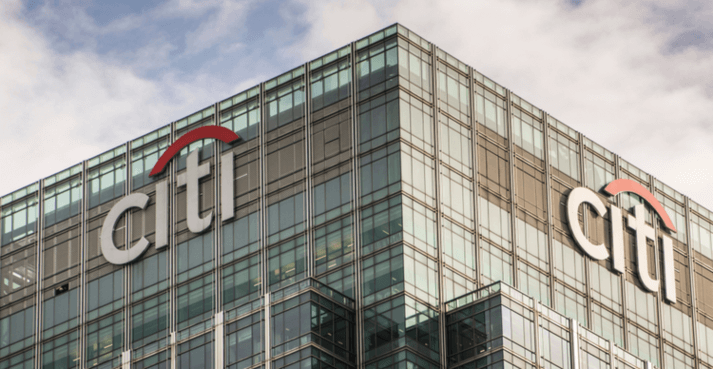
The cryptocurrency space recorded massive adoption in August despite some regulatory agencies clamping down on the activities of cryptocurrency service providers
More financial institutions are getting in on cryptocurrency
One of the most interesting trends in August is the continued adoption of cryptocurrencies by institutional investors. MicroStrategy confirmed its status as perhaps the most bullish corporate entity in the cryptocurrency space after spending another $177 million on Bitcoin. Over the past few months, the company has bought Bitcoin worth nearly $3 billion, making it one of the biggest holders of the cryptocurrency. The company holds over 100,000 bitcoins, worth over $5 billion.
Financial institutions also got in on the act of adopting cryptocurrencies. Citigroup is expected to start trading the CME Bitcoin futures soon. This comes following an increase in requests from its clients to gain exposure to cryptocurrencies.
Another US-based financial institution, JPMorgan Chase, also launched its in-house Bitcoin fund for its wealthy clients. JPMorgan partnered with NYDIG, the BTC arm of wealth management firm Stone Ridge to offer the Bitcoin fund to its wealthy clients. The fund is expected to give JPMorgan’s wealthy clients indirect access to cryptocurrencies.
Wells Fargo is the third US traditional bank to make a move into the cryptocurrency space this month. The bank registered a Bitcoin fund with United States regulators, seeking to grant its wealthy clients exposure to the leading cryptocurrency. Wells Fargo’s Bitcoin Fund is in partnership with NYDIG and FS Investments and is called FS NYDIG Bitcoin Fund.
Leading investment manager Neuberger Berman also added Bitcoin and Ether to its fund strategy earlier this month. The asset manager, with over $400 billion in assets under management, has filed with the US Securities and Exchange Commission (SEC) to gain exposure to Bitcoin and Ether via derivatives and other investment vehicles. The asset management firm said it has always been intrigued by Bitcoin and what the cryptocurrency has to offer.
Popular chip manufacturer Intel bought Coinbase shares in the second quarter of the year. Intel believes in Coinbase’s business model and believes it could control a large part of the cryptocurrency market over the coming years.
AMC, the largest theatre chain in the United States, announced earlier this week that it would start accepting Bitcoin as payments before the end of the year. The company will accept BTC payments for tickets and concessions across its 593 theatres across the United States.
Walmart is also looking to enter the cryptocurrency space and wants to hire a crypto product lead. The company posted a LinkedIn job post, stating that it wants a candidate with a history of leading and scaling businesses. The candidate will also be able to identify cryptocurrency-related investments and partnerships.
Regulators are getting serious with cryptocurrency regulation
The cryptocurrency market is growing, and this has made it necessary for regulators in various parts of the world to take notice and ensure investors get the required level of protection. The chairman of the United States SEC discussed extensively this month the need to regulate the cryptocurrency market. He stated the need to regulate the decentralised finance (DeFi) space, stablecoins and cryptocurrency exchanges. He asked the United States Congress to give the SEC more resources and authority to increase its oversight of the cryptocurrency market. According to Gensler, some DeFi projects fall within the SEC’s jurisdiction, and they need to regulate them.
Earlier this month, Spanish regulator the National Securities Market Commission issued a warning to some cryptocurrency exchanges and trading platforms for operating investment platforms without being registered with the authorities. Cryptocurrency exchanges Huobi and Bybit were amongst the 12 companies that were warned by the Spanish regulator.
Binance discontinues services in some countries
Binance’s regulatory challenges continued this month, leading the cryptocurrency exchange to make changes to its operations. The Dutch central bank warned that Binance was operating without a licence in the country.
The cryptocurrency exchange has stopped derivatives trading in Hong Kong and Australia. It also ended futures trading services in Brazil due to regulatory challenges. In South Korea, the cryptocurrency exchange discontinued South Korean won trading pairs, won payment options and the Korean language support on its platform.
Poly Network hack ends in good news for everyone involved
A major event this month was the hack of Poly Network. The attacker stole $611 million from the platform, making it the biggest heist in the history of the DeFi sector. However, the attacker claimed that he did this to highlight the security lapses in the network. The attacker returned the funds to the DeFi protocol and also the keys of the wallets. Poly Network developers offered the attacker the role of chief security advisor and a bounty reward of $500,000. Despite the twists and turns in events, the cryptocurrency project was able to get back the entire $611 million it lost in the attack.
Google allows crypto companies to advertise again
Leading search engine Google allowed cryptocurrency companies to advertise their services. Crypto exchanges and wallet service providers are allowed to advertise their products and services on Google. The search engine giant said Initial Coin Offerings (ICOs) and DeFi trading protocols are not allowed to advertise on Google.
PayPal introduces its crypto services in the UK
PayPal announced earlier this month that it had introduced its cryptocurrency services to its customers in the United Kingdom. The payment giant launched its crypto services last year. However, it was restricted to traders in the United States. UK traders can now buy, sell and hold cryptocurrencies using their PayPal account.
Ethereum network activates the London hard fork
The London hard fork went live on the Ethereum network earlier this month. The hard fork brings the Ethereum network’s migration to a Proof of Stake protocol closer. While the London fork doesn’t reduce the transaction fees on the Ethereum blockchain, it makes it easier for users to predict the transaction fees they will pay on the network.

